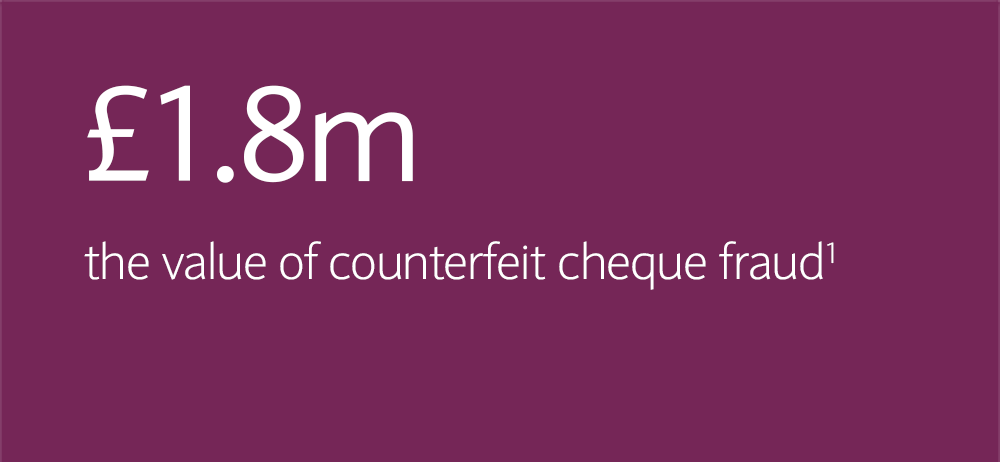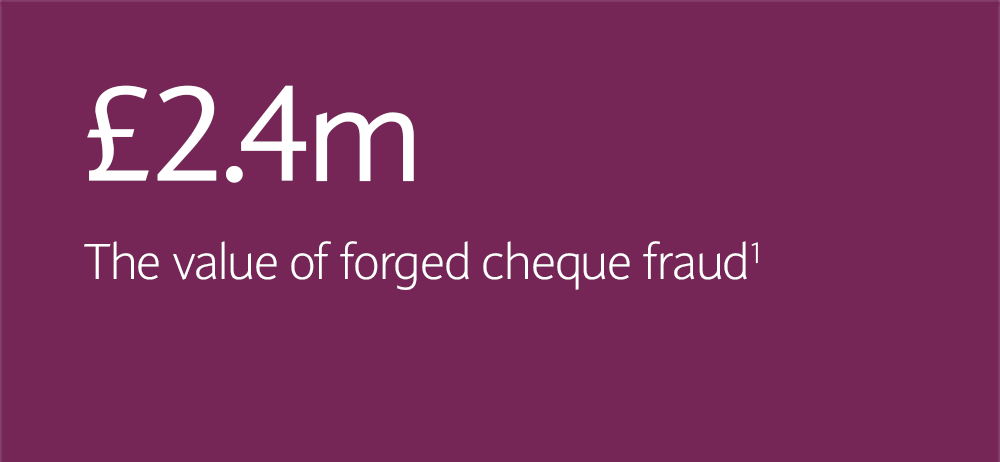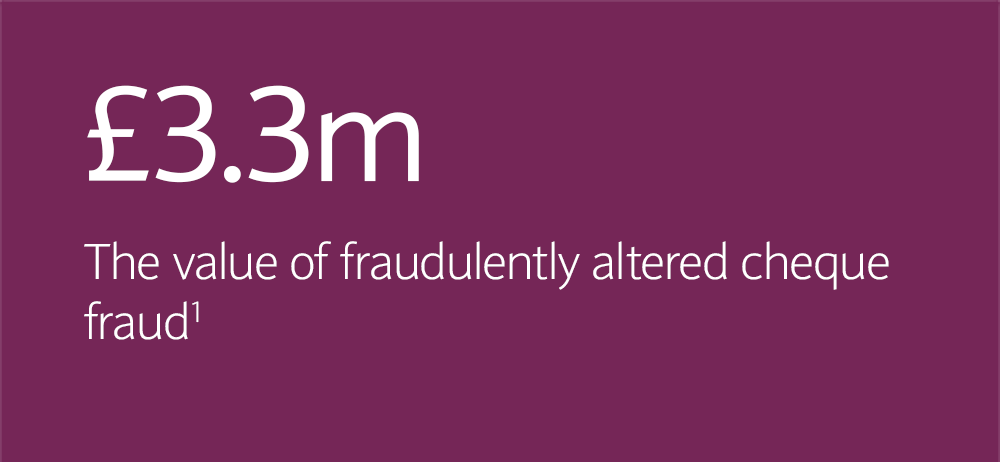
Cheque Fraud
‘Cheque’ your mail is safe
What is cheque fraud?
Cheque fraud has declined in line with cheque use, but businesses that issue or accept high numbers of cheques remain vulnerable. Fraudsters know that many companies issue cheques in high numbers, with envelopes displaying company logos, and contents often visible through envelope windows. That makes corporates especially vulnerable to cheque fraud.
How to prevent cheque fraud
When issuing cheques:
- Draw a line: Ensure a line is drawn through all unused space
- Spoiled checks: Ensure spoiled cheques are properly accounted for and destroyed
- Keep cheques in a secure location: Run regular audits of cheque stock and inform your bank of any discrepancies
- Delays: Follow up any cheques being received; in case it has been intercepted in the post.
When accepting cheques:
- Releasing goods: Wait until a cheque payment has cleared before releasing goods or services
- Refund requests: Wait until a cheque payment has cleared before processing refund requests – fraudsters may grossly overpay by cheque and request return of the difference before the cheque clears
- Safe payment methods: Consider safer payment methods such as electronic payments, particularly for high values.
What to do if you're a victim
- Contact us immediately to report any concerns or suspicions of cheque fraud – call 0330 156 0155
- Report it to Action Fraud – the police’s national fraud and cyber-crime reporting centre – even if the fraudulent attack has failed. Call 0300 123 2040 or file a report at actionfraud.police.uk
Wake up to the reality of cheque fraud



3 types of cheque fraud
1. Counterfeit
Cheques created on non-bank paper to look genuine.
2. Forged
Stolen cheques bearing forged signatures.
3. Fraudulently altered
A criminal changes details on the cheque, such as the payee or the amount.
Your next steps
Report fraud
To report any fraudulent activity, or attempts, contact Barclays Corporate fraud on 0330 156 0155* or if calling from overseas dial +441606566208.
If you receive a suspicious email, send it as an attachment to internetsecurity@barclays.co.uk and delete the email immediately.
Are you protected?
To keep yourself, and your organisation protected from criminals, ensure you keep up to date with our latest resources and advice.
Fraud and Scam Toolkit